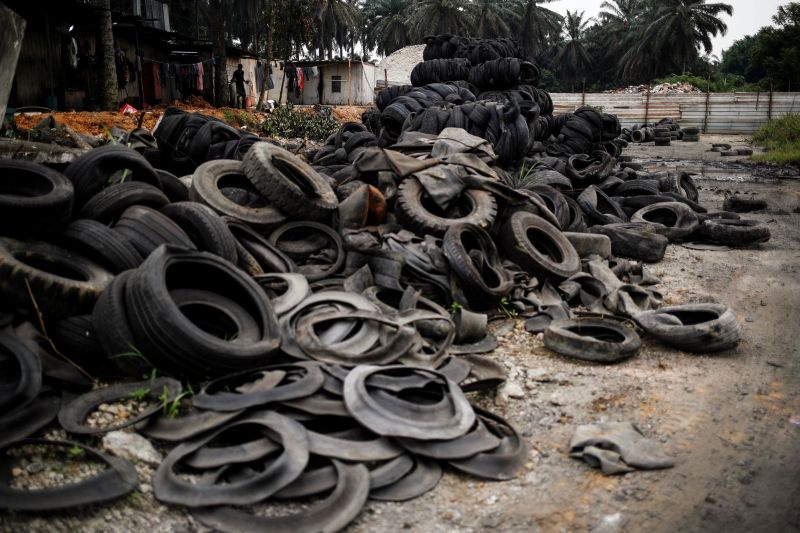1

Bales of tyres from Australia and New Zealand are dumped at a compound next to the living quarters of the workers at a tyre pyrolysis plant in Kulai, Johor, Malaysia August 7, 2019. Picture taken August 7, 2019. (Reuters Photo)
John Geddie, Sudarshan Varadhan, Joe Brock
Reuters
When night falls in the Indian village of Nabipur, the backyard furnaces come to life, burning waste tyres from the West, making the air thick with acrid smoke and the soil black with soot.
Not long ago, Nabipur was a quiet farming village in northern India. Now the village is home to at least a dozen furnaces burning a steady stream of tyres to make low-quality oil in a process known as pyrolysis.
Global trade in waste tyres has almost doubled in the past five years, mainly to developing countries like India and Malaysia, according to customs data provided to the United Nations.
Britain is currently the largest exporter, followed by Italy and the United States. India is by far the biggest buyer, accounting for 32% of global imports last year, up from 7% five years ago, the U.N. data shows.
Many of the tyres are sent to recycling operations that comply with emissions and waste disposal regulations. But there is also a vast trade to backyard pyrolysis operations that do not, according to local authorities.
In May, Reuters revealed that a mass poisoning in southern Malaysia had links to companies engaged in pyrolysis.
Using unpublished customs data and interviews with dozens of industry sources, Reuters documented a growing international trade in waste tyres that pollute the communities that host them, according to local authorities and health experts.
For many developed countries, shipping tyres abroad is cheaper than recycling them domestically. That helped drive international trade in rubber waste to nearly 2 million tonnes in 2018, equivalent to 200 million tyres, from 1.1 million tonnes in 2013.
The trade has also been fed by ravenous fuel demand for industrial furnaces in countries like India, the emergence of inexpensive Chinese pyrolysis equipment, and weak regulations worldwide.
UNSUSTAINABLE
Tyres are not defined as hazardous under the Basel Convention, which governs trade in dangerous waste, meaning there are few restrictions on trading them internationally unless specified by the importing country.
In most countries, including China and the United States, the majority of scrap tyres are handled domestically and dumped in landfills, recycled or used as fuel in factories producing products like cement and paper.





